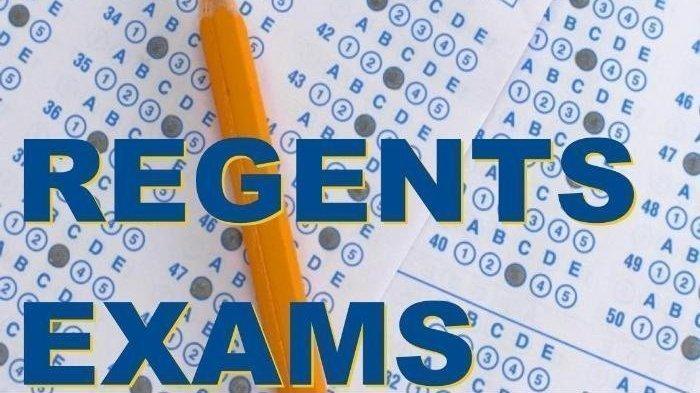Regents Exams 2025
Regents Exams are standardized high school exams in major subjects for the students to earn a high school diploma in New York. Students are required to pass 5 major subjects along with earning required credit in school courses. Regents exams are designed by New York State Education Department (NYSED) and are conducted at each high school.
A conference of teachers is assigned to prepare the test to assess student’s basic knowledge and understanding of the subject area. The conferences hold a meeting and design the tests three years before the tests administration.
When are Regents Exams Held?
Regents exams are held in January, June and August every year. Check the Schedule and Dates of Regents Exams here.
Are Regents mandatory in NY?
Yes, passing the New York State Regents Exam is a prerequisite for graduating high school seniors to earn their diplomas. However, changes to eliminate this requirement are slated to take effect as early as the next school year.
What is the hardest Regents exam?
According to the majority of the students, Global History is the hardest Regents exam. Students are required to memorize the events, dates and names of the historic figures.
What grades take Regents exams in NY?
Students can take Regents exam in grade 9 to 12. Students may also take Regents exam after leaving high school.
How long is Regents in NYC?
Most of the exams are three hours long papers.
Do colleges look at NY Regents?
Yes, many colleges and universities consider and require Regents exams scorer as part of their admission process. Also, it is a basic required for high school graduation.
What subjects are tested on the Regents Exams?
The Regents Exam cover a wide range of subjects that are typically taught in high school. Here are the subjects that are tested on the Regents Exams:
English Language Arts (ELA): This exam measures a student’s proficiency in reading, writing, and critical thinking.
Mathematics: There are four Regents Exams in mathematics: Algebra I, Geometry, Algebra II, and Trigonometry. These exams cover a range of topics in algebra, geometry, and trigonometry.
Science: There are four Exams in science: Living Environment (Biology), Earth Science, Chemistry, and Physics. These exams test a student’s knowledge of scientific concepts and principles.
Social Studies: There are four Exams in social studies: Global History and Geography, U.S. History and Government, Participation in Government, and Economics. These exams cover a range of topics in history, government, and economics.
In addition to these core subjects, there are also optional Regents Exams in subjects such as Art, Music, and Languages Other Than English.
It’s worth noting that the content and format of the Regents Exams can change over time, so it’s important to stay up-to-date with the latest information and exam requirements.
What is the minimum score to pass Regents Exams?
Students are required to score minimum 65 to pass the exams. A score 85 to 100 is considered excellent score.
What if you fail a Regents?
You can retake Regents exams as many times as you wish. Scoring over 75 should be your priority.
What is a good Regents Score?
A Score of 75 or above is considered a good score in Regents exams.
What is excellent Regents score?
A score of 85-100 is considered excellent regents score.
Regents Paper Sections
| Exam | Part I | Part II | Part III | Part IV |
| Algebra I | 24 multiple-choice questions | 8 open-ended questions | 4 open-ended questions | 1 open-ended question |
| Algebra II | 24 multiple-choice questions | 8 open-ended questions | 4 open-ended questions | 1 open-ended question |
| Chemistry | 30 multiple-choice questions | Mix of 35 multiple-choice and open-ended questions | 20 open-ended questions | |
| Earth Science | 35 multiple-choice questions | 15 multiple-choice and 15 open-ended questions | 20 open-ended questions | |
| English Language Arts | 24 multiple-choice questions | Source-based argument | Text-analysis response | |
| Geometry | 24 multiple-choice questions | 7 open-ended questions | 3 open-ended questions | 1 open-ended question |
| Global History and Geography II | 28 multiple-choice questions in chronological order from earliest to latest | 2 sets of constructive-response questions | 1 essay question based on five documents. | |
| Living Environment | 30 multiple-choice questions | Mix of 25 multiple-choice and open-ended questions | 17 open-ended questions | Mix of 12 multiple-choice and open-ended questions |
| Physics | 35 multiple-choice questions | 15 multiple-choice and 15 open-ended questions | 20 open-ended questions | |
| United States History and Government (Framework) | 28 multiple-choice questions in chronological order from earliest to latest | 2 short-essay questions | 6 document-based questions and 1 essay question |



